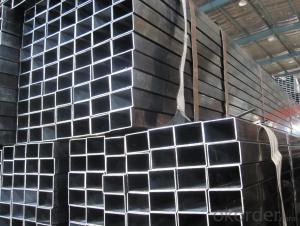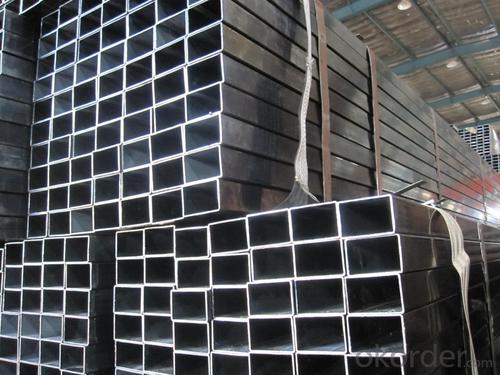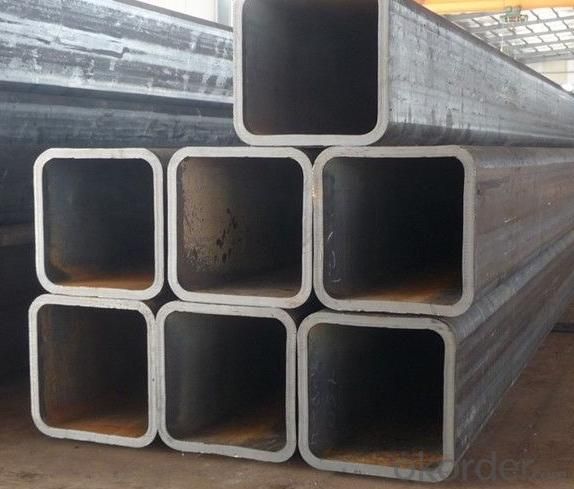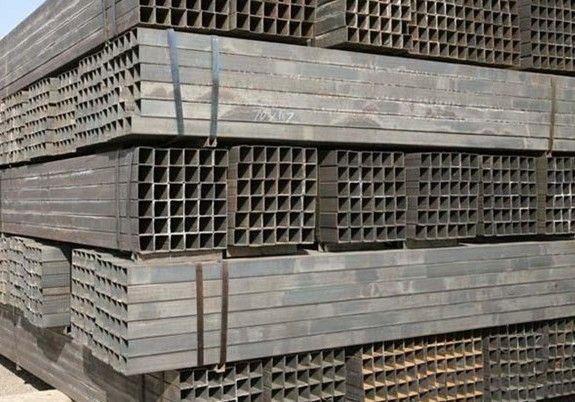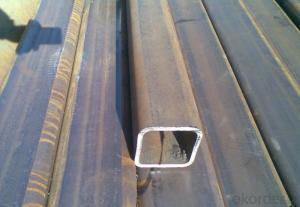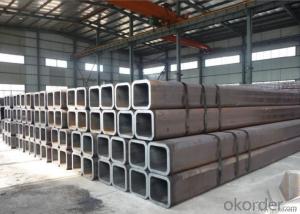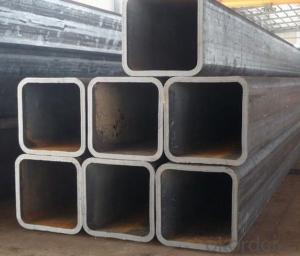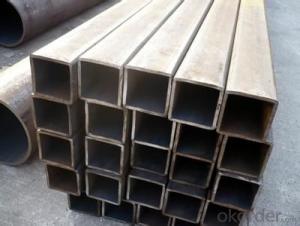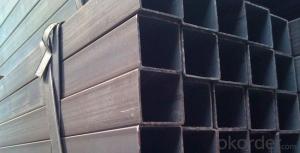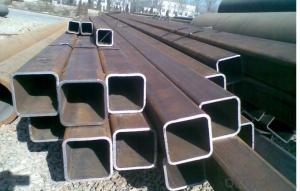Rectangular Steel Pipe Production Serious
- Loading Port:
- Tianjin
- Payment Terms:
- TT OR LC
- Min Order Qty:
- 25 m.t.
- Supply Capability:
- 7000 m.t./month
OKorder Service Pledge
OKorder Financial Service
You Might Also Like
1、Structure of Rectangular Steel Pipe Production API53:
Seamless pipe is formed by drawing a solid billet over a piercing rod to create the hollow shell. As the manufacturing process does not include any welding, seamless pipes are perceived to be stronger and more reliable. Historically seamless pipe was regarded as withstanding pressure better than other types, and was often more easily available than welded pipe.
2、Main Features of the Rectangular Steel Pipe Production API53:
• Powerful strength
• Not so big inertia resistance
• Strong heat dissipation ability
• Very good visual effection
• Reasonable price
3、Rectangular Steel Pipe Production API53: Specification:
Standard | GB, DIN, ASTM ASTM A106-2006, ASTM A53-2007 |
Grade | 10#-45#, 16Mn 10#, 20#, 45#, 16Mn |
Thickness | 8 - 33 mm |
Section Shape | Round |
Outer Diameter | 133 - 219 mm |
Place of Origin | Shandong, China (Mainland) |
Secondary Or Not | Non-secondary |
Application | Hydraulic Pipe |
Technique | Cold Drawn |
Certification | API |
Surface Treatment | factory state or painted black |
Special Pipe | API Pipe |
Alloy Or Not | Non-alloy |
Length | 5-12M |
Outer Diameter | 21.3-610mm |
Grade | 20#, 45#, Q345, API J55, API K55, API L80, API N80, API P110, A53B |
Standard | ASME, ASTM |
1) Material:20#(ASTM A 106/A53 GRB.API5LGRB,GB),45#,16Mn,10#.
2) Specification range:OD:21.3-610mm,WT:6-70mm,length:6-12m or according to the requirement of clients.
3) Excutive standards:GB,ASME API5L.ASTM A 106/A53,Despite of the above standards,we can also supply seamless steel pipe with standard of DIN,JIS,and so on,and also develop new products according to the requirements of our clients!
4) Surface:black lacquered,varnish coating or galvanized.
5) Ends:Beveled or square cut,plastic capped,painted.
6) Packing:bundles wrapped with strong steel strip,seaworthy packing.
4、Packaging & Delivery
Packaging Details: | seaworthy package,bundles wrapped with strong steel strip |
Delivery Detail: | 15-30days after received 30%TT |
5、FAQ of Rectangular Steel Pipe Production API53:
①How is the quality of your products?
We company professional to provide these serious of pipes and what we can give you is not only in good sprice, the most important is we can provide you good quality.
②How about price?
Yes, we are factory and be able to give you lowest price below market one, and we have a policy that “ for saving time and absolutely honest business attitude, we quote as lowest as possible for any customer", and we always to provide you discount, we are trying to give every customer best price and satisfy price.
③Why should you chose us?
Chose happens because of quality, then price, We can give you both.Additionally, we can also offer professional products inquiry, products knowledge train(for agents), smooth goods delivery, exellent customer solution proposals.Our service formula: good quality+good price+good service=customer’s trust
SGS professional test is available, we make sure what you received is best production from us, customer inspection before shipping is welcome, third party inspection is no problem.
6、Rectangular Steel Pipe Production API53 Images:
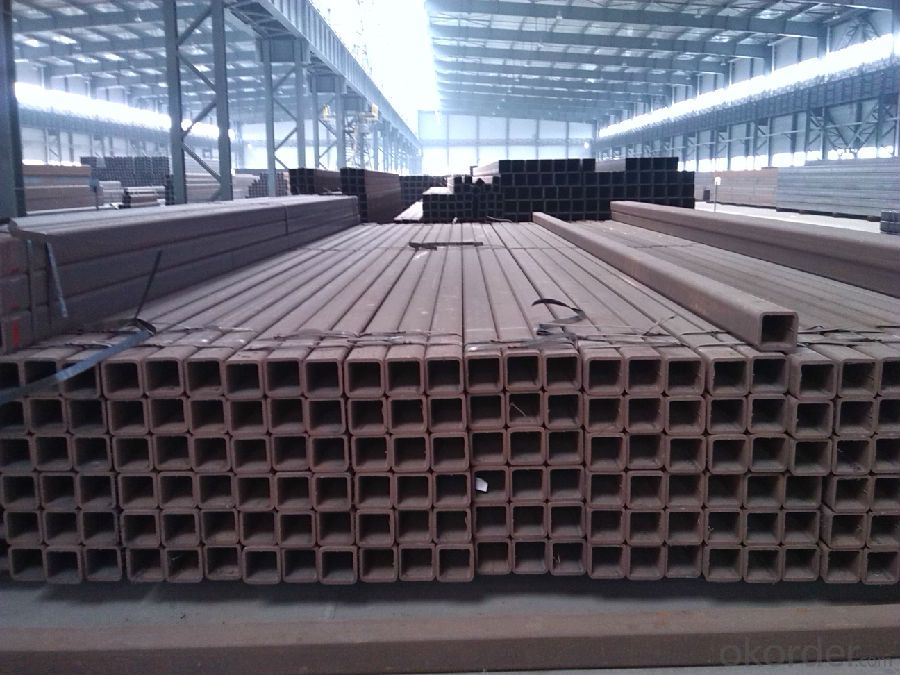
- Q: How do you prevent steel pipes from rusting?
- Various measures can be taken to prevent the rusting of steel pipes. One effective method is the application of a protective coating on the surface of the pipes. Different types of coatings, such as paint, epoxy, or zinc, can be used for this purpose. These coatings act as a barrier between the steel and the corrosive environment, thereby preventing direct contact between moisture, oxygen, and the metal, which can lead to rust formation. Another approach involves the use of corrosion inhibitors. These substances are added to the water or fluid flowing through the pipes, creating a protective film on the surface of the steel. This film acts as a shield, inhibiting the corrosion process and preventing the formation of rust. Regular maintenance plays a crucial role in preventing rust on steel pipes. It is essential to inspect the pipes regularly for any signs of damage or corrosion and promptly repair or replace any compromised areas. Additionally, keeping the pipes clean and dry by removing accumulated dirt or moisture helps prevent the formation of rust. In some cases, using stainless steel pipes instead of regular steel can be beneficial. Stainless steel contains chromium, which forms a passive oxide layer on the metal's surface. This layer acts as a natural barrier against corrosion, making stainless steel pipes highly resistant to rust. Finally, controlling the installation environment of the pipes can also help prevent rust. This can be achieved by maintaining proper ventilation, controlling humidity levels, and avoiding exposure to harsh chemicals or corrosive substances. By implementing these preventive measures, the lifespan and integrity of steel pipes can be significantly extended, while minimizing the risk of rust formation.
- Q: What are the common sizes of steel pipes available?
- The specific industry or application determines the availability of common sizes of steel pipes. However, different industries commonly use several standard sizes. These sizes are usually identified by their nominal pipe size (NPS) or outside diameter (OD). Steel pipes are commonly found in sizes such as 1/8 inch, ¼ inch, ½ inch, ¾ inch, 1 inch, 1 ¼ inch, 1 ½ inch, 2 inch, 2 ½ inch, 3 inch, 3 ½ inch, 4 inch, 5 inch, 6 inch, 8 inch, 10 inch, 12 inch, 14 inch, 16 inch, 18 inch, 20 inch, 24 inch, 26 inch, 30 inch, 36 inch, 42 inch, 48 inch, and 54 inch. These sizes are widely used in various applications, including plumbing, construction, oil and gas pipelines, structural supports, and industrial processes. It is important to note that these sizes may slightly differ according to industry standards or requirements. Moreover, steel pipes are available in different wall thicknesses known as schedules. The most commonly used schedules are schedule 40, schedule 80, schedule 160, and schedule XXS (extra extra strong). The schedule number indicates the pipe's wall thickness, with higher numbers indicating thicker walls. To summarize, the available common sizes of steel pipes range from 1/8 inch to 54 inches in diameter. These sizes are commonly used in different industries and applications, and their wall thickness can vary based on the specific schedule.
- Q: Can steel pipes be used for underground cooling systems?
- Yes, steel pipes can be used for underground cooling systems. Steel pipes are commonly used in various applications, including underground cooling systems, due to their durability, strength, and resistance to corrosion. They can effectively handle the high pressure and temperature demands of cooling systems. Additionally, steel pipes can be welded or threaded together, allowing for easy installation and maintenance. However, it is important to ensure that the steel pipes are properly coated or insulated to prevent corrosion and maintain efficiency in heat transfer.
- Q: Are steel pipes suitable for use in sewage treatment plants?
- Yes, steel pipes are suitable for use in sewage treatment plants. They are durable, strong, and resistant to corrosion, making them ideal for handling the harsh environment and corrosive substances found in sewage treatment plants. Steel pipes also offer excellent flow characteristics and can withstand high pressure, making them reliable for transporting wastewater and sewage within the facility.
- Q: What is the single length of galvanized steel pipe?
- Galvanized steel pipe is divided into cold galvanized steel pipe, hot galvanized steel pipe, cold galvanized steel pipe has been banned, and the latter is also advocated by the state for the moment, can be used. In 60s and 70s, developed countries began to develop new types of pipes, and galvanized pipes were banned.
- Q: Can steel pipes be used for automotive applications?
- Yes, steel pipes can be used for automotive applications. Steel pipes are commonly used in the automotive industry for various purposes such as exhaust systems, fuel lines, and hydraulic systems. Steel pipes offer high strength, durability, and resistance to corrosion, making them suitable for withstanding the harsh conditions and demands of automotive applications. Additionally, steel pipes can be easily formed and welded, allowing for customization and ease of installation. Overall, steel pipes provide a reliable and cost-effective solution for automotive applications.
- Q: Can steel pipes be used for sewage and wastewater systems?
- Yes, steel pipes can be used for sewage and wastewater systems. Steel pipes offer durability, strength, and resistance to corrosion, making them suitable for conveying sewage and wastewater. Additionally, steel pipes can handle high-pressure flows and are often used in larger diameter applications, making them a reliable choice for sewage and wastewater systems.
- Q: What is the outer diameter of the steel tube?
- The diameter of a steel pipe refers to the diameter of the steel pipe. The specifications of the steel tube is normal with diameter (diameter and thickness) said, for example 100MM outer diameter and wall thickness of 5MM tube is marked with 100*5.
- Q: Can steel pipes be used for underground drainage in acidic soils?
- Yes, steel pipes can be used for underground drainage in acidic soils. However, it is important to consider the type of steel used and the corrosion resistance properties to ensure longevity and prevent potential damage from the acidic environment. Additionally, protective coatings or linings can be applied to the steel pipes to enhance their resistance to corrosion in acidic soils.
- Q: How are steel pipes used in the construction of oil and gas pipelines?
- Steel pipes are commonly used in the construction of oil and gas pipelines due to their strength, durability, and resistance to corrosion. These pipes are primarily used for transporting oil and gas over long distances, ensuring a reliable and efficient flow of these resources. The steel pipes are welded together to form a continuous pipeline that can withstand high pressure and extreme weather conditions. Additionally, their smooth interior surface minimizes friction and allows for efficient transportation of oil and gas.
Send your message to us
Rectangular Steel Pipe Production Serious
- Loading Port:
- Tianjin
- Payment Terms:
- TT OR LC
- Min Order Qty:
- 25 m.t.
- Supply Capability:
- 7000 m.t./month
OKorder Service Pledge
OKorder Financial Service
Similar products
Hot products
Hot Searches
Related keywords
